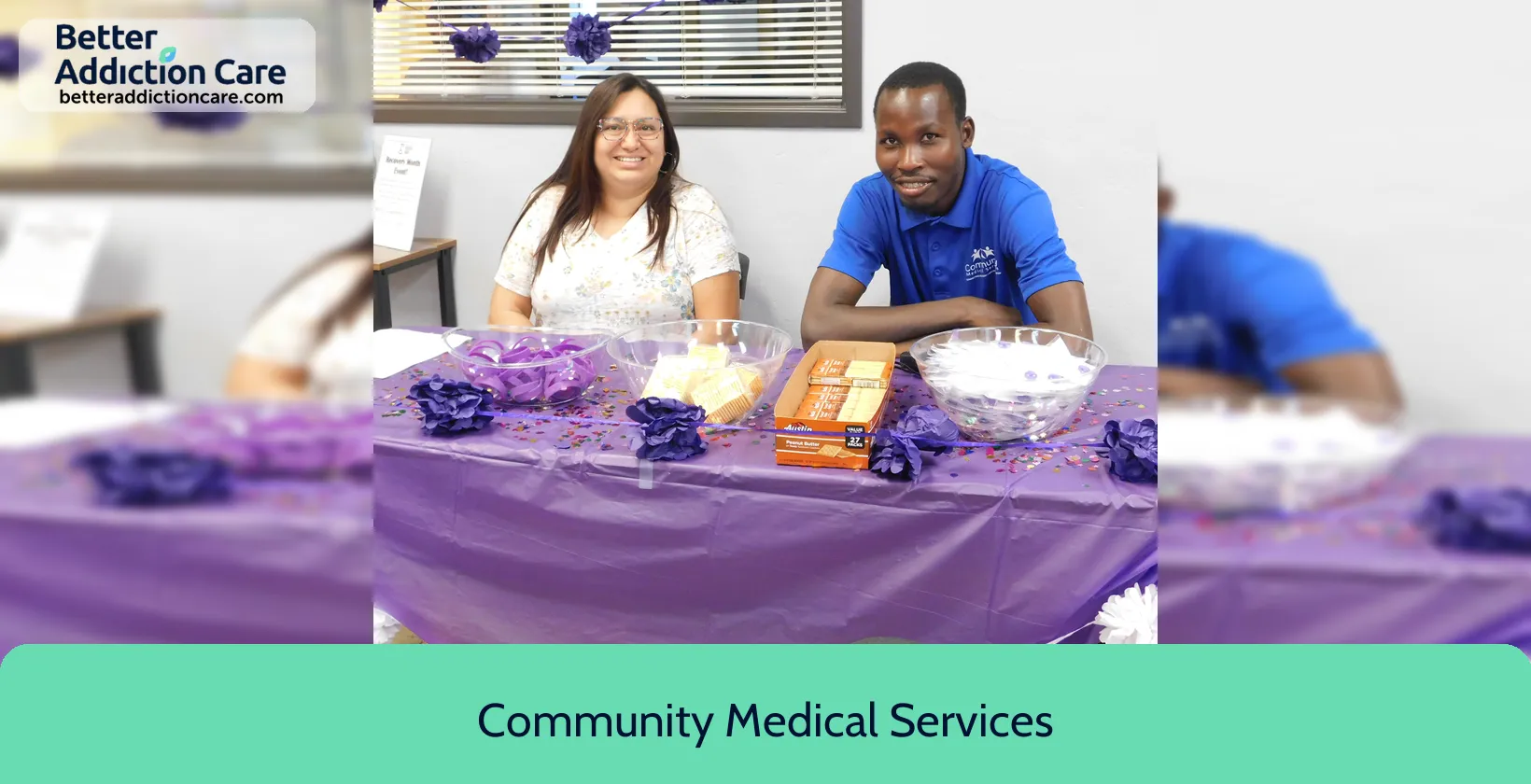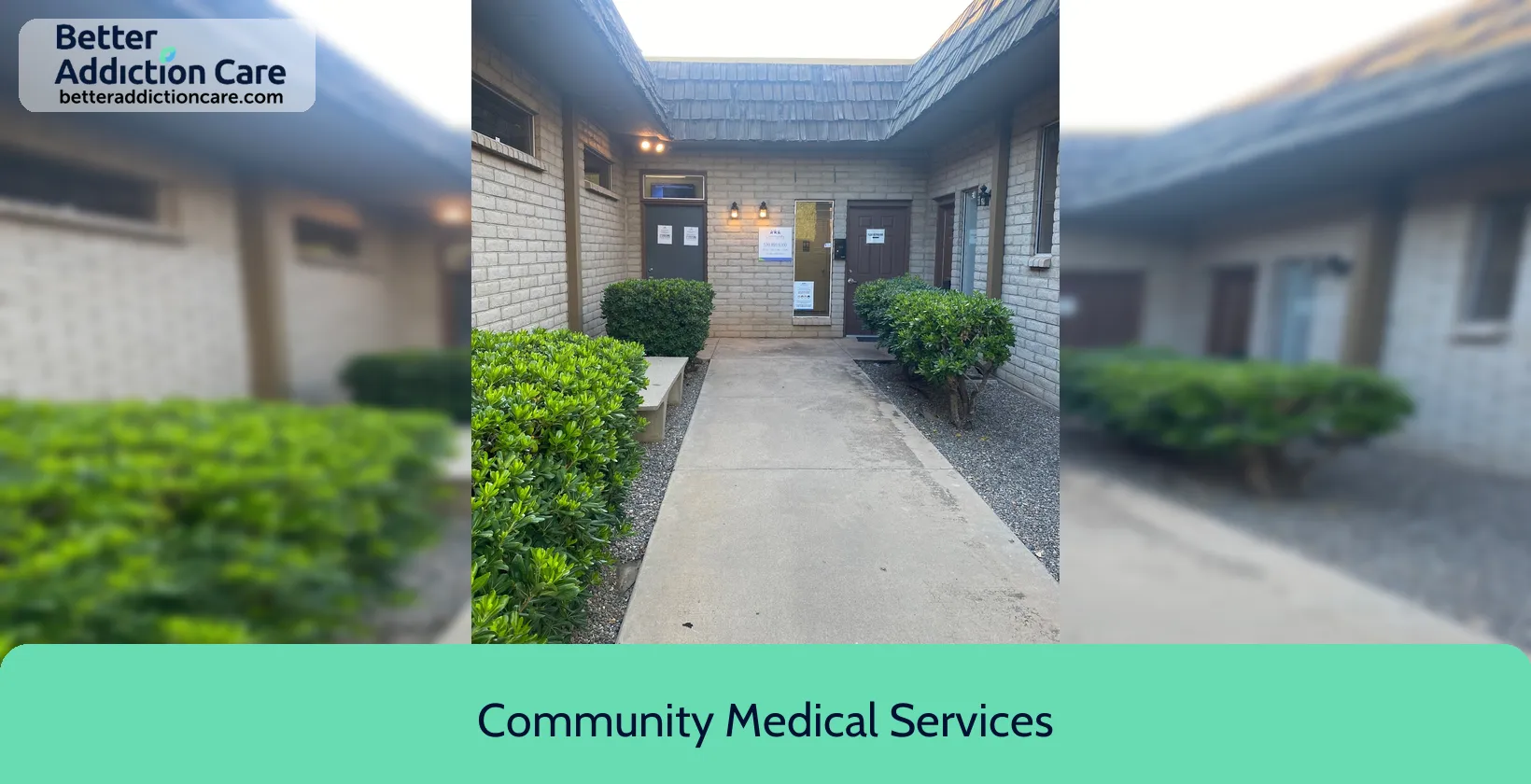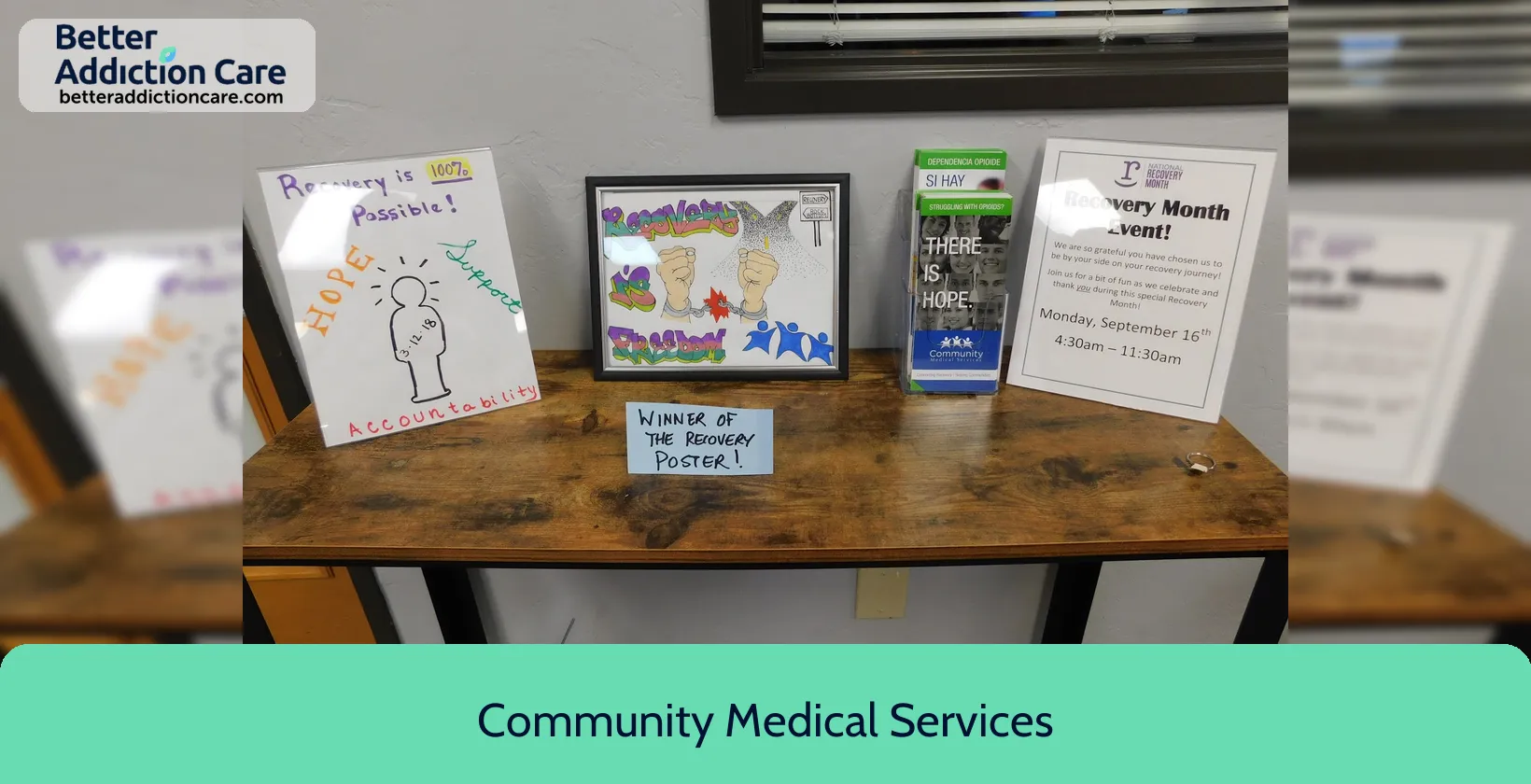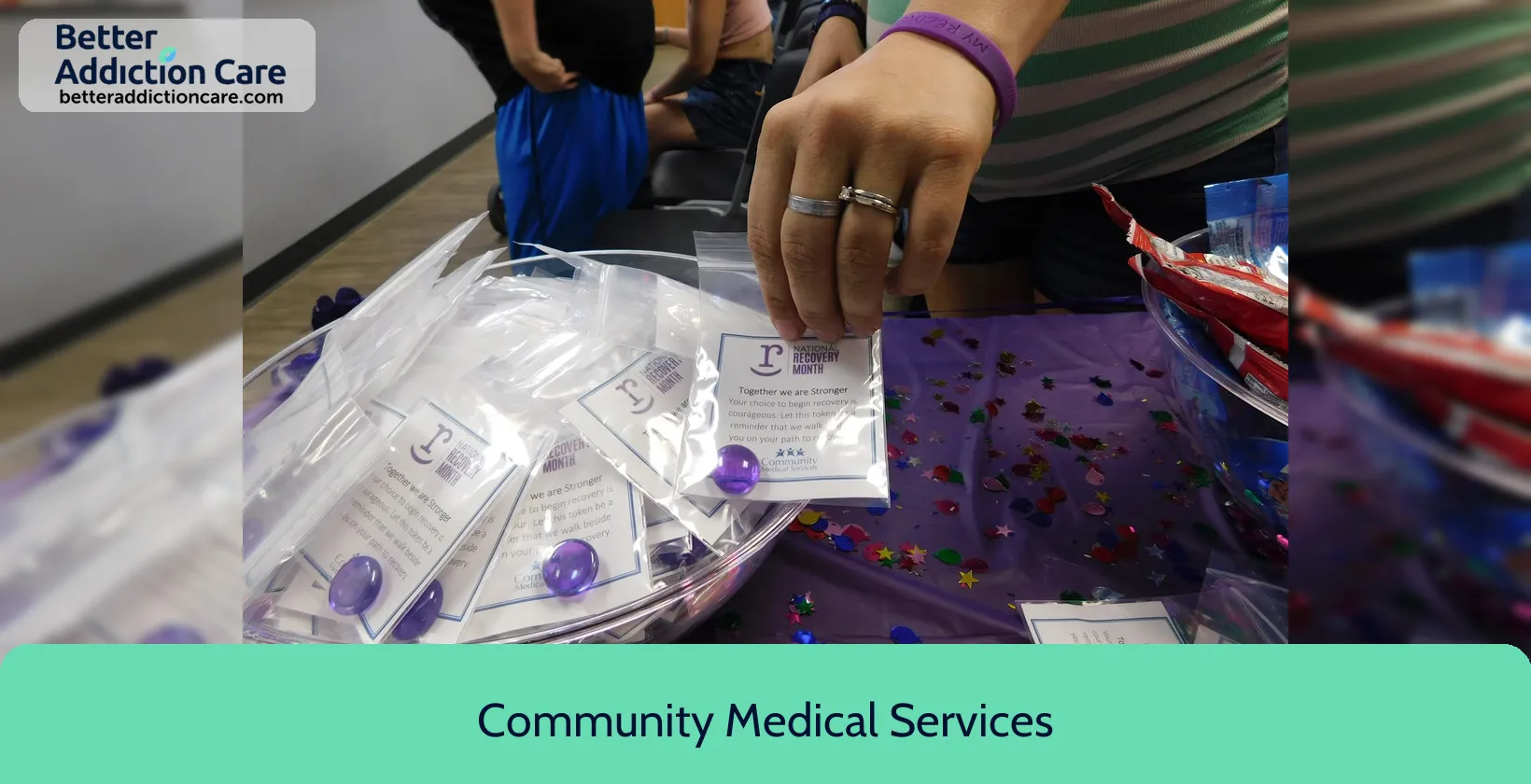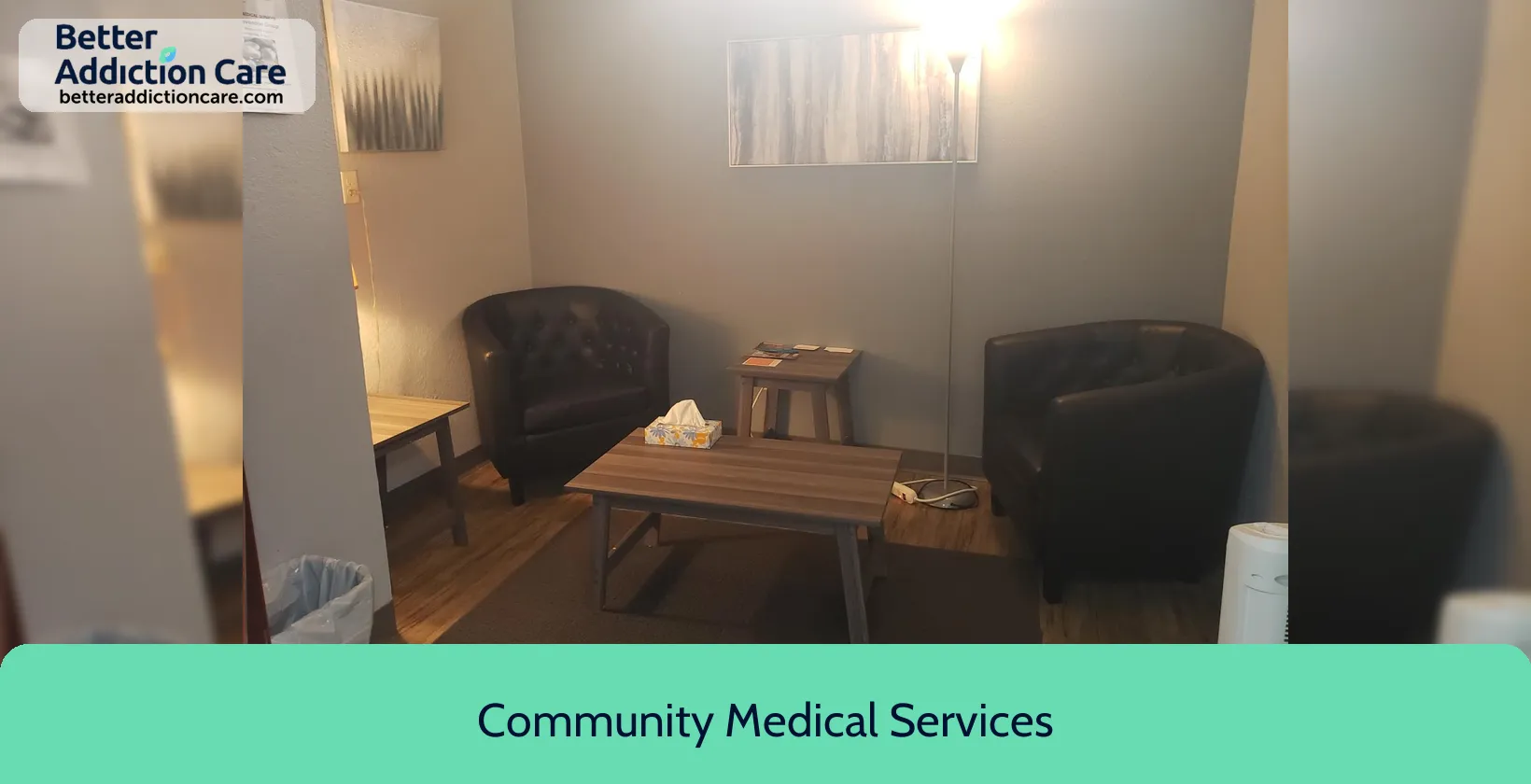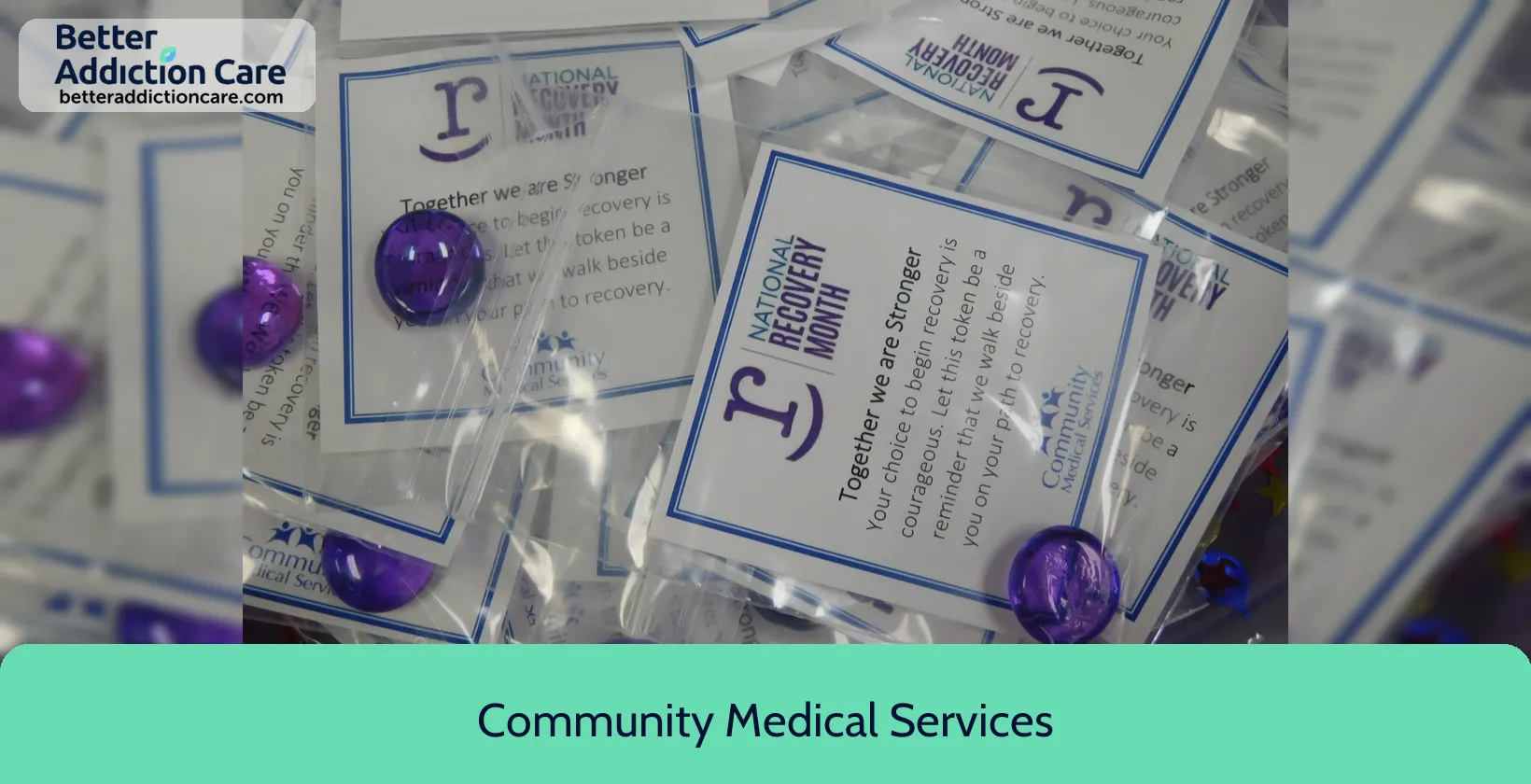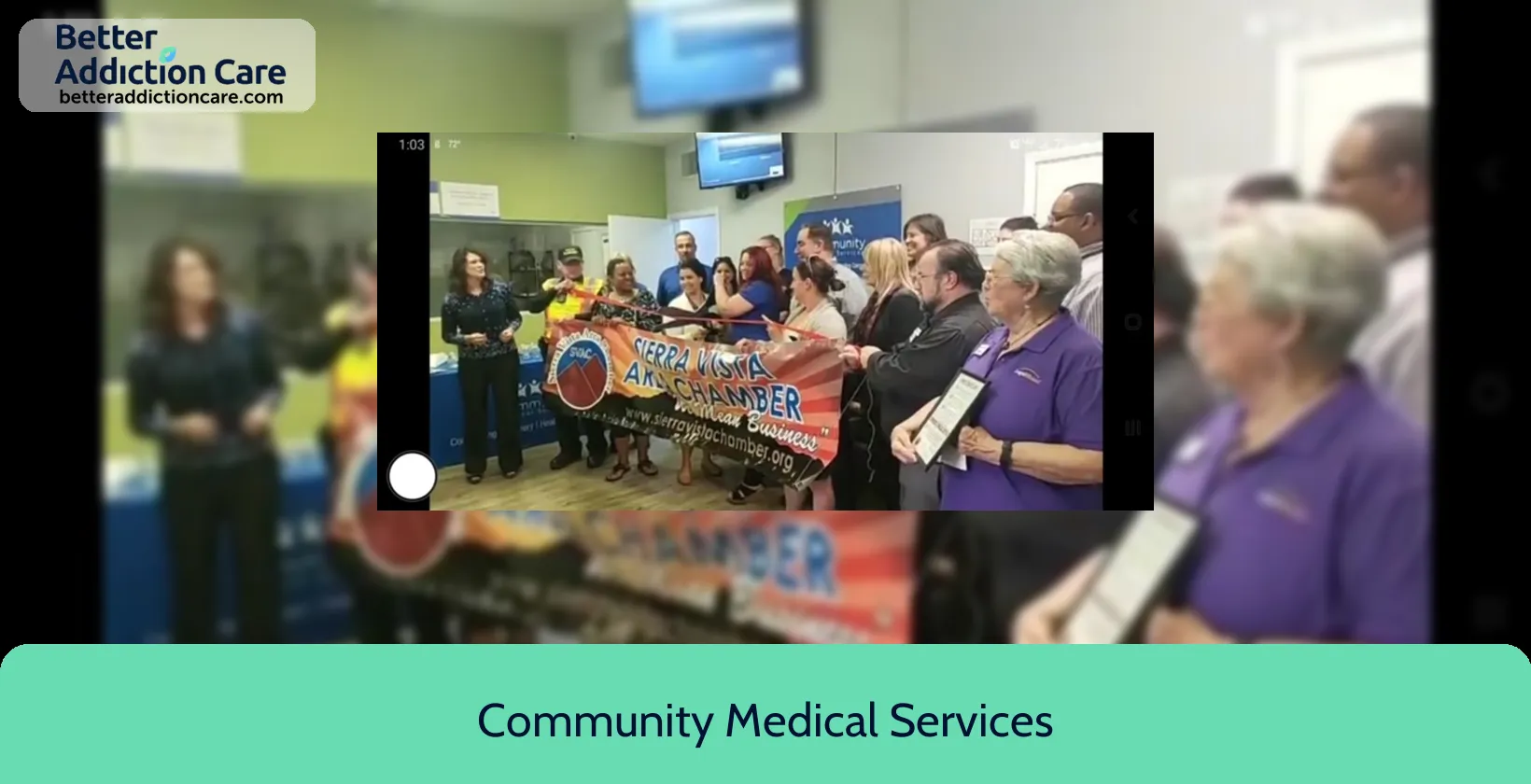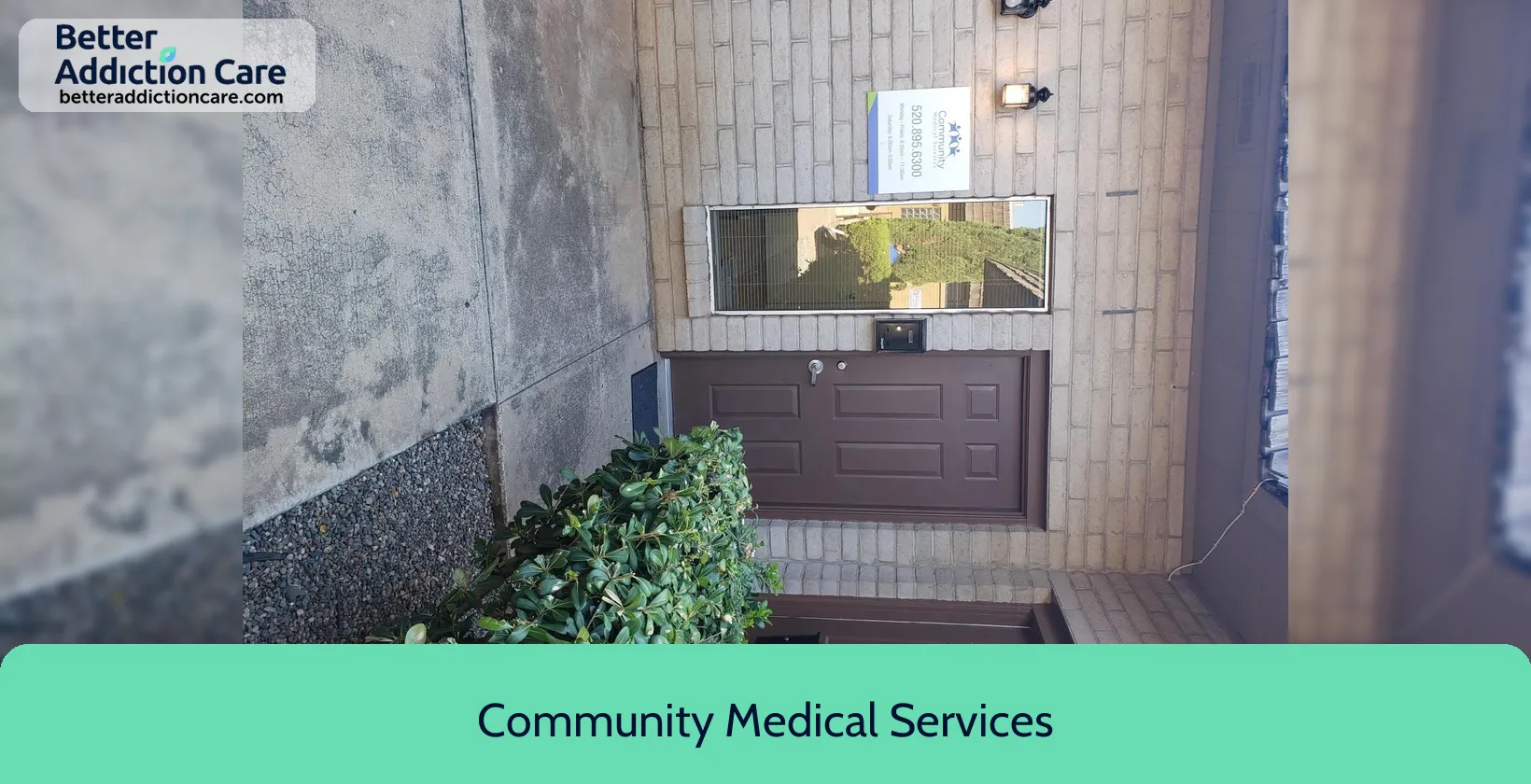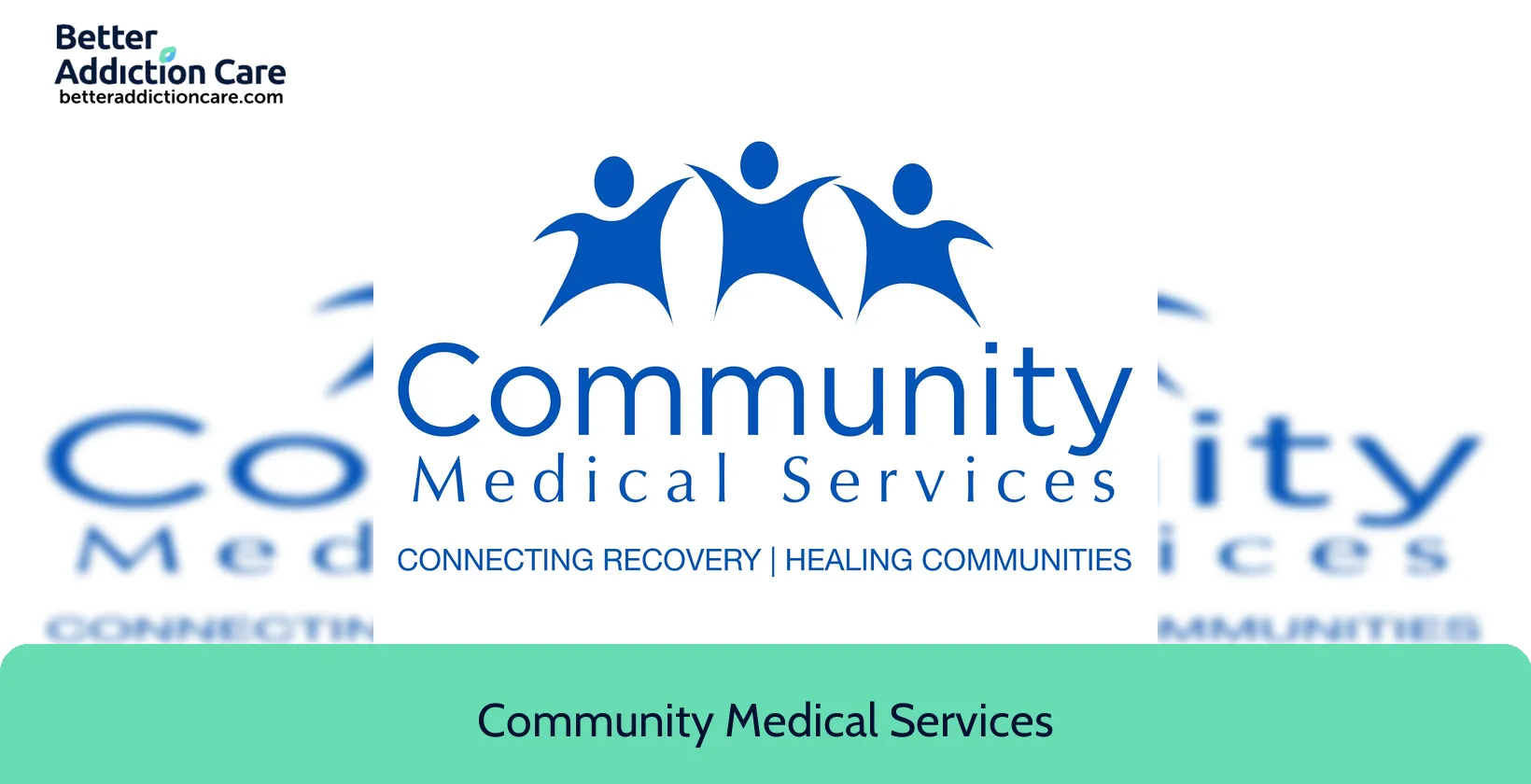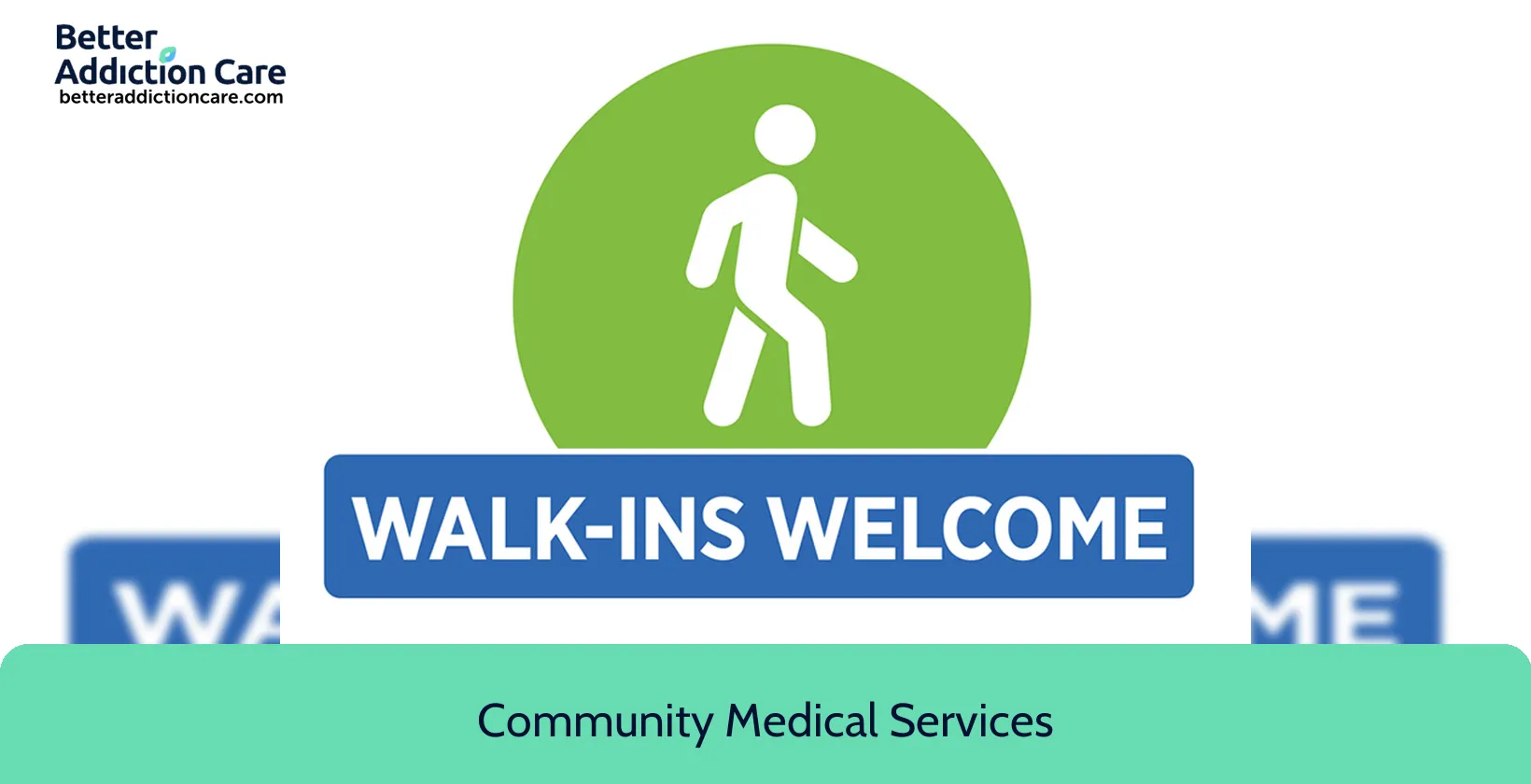Community Medical Services
Overview
Community Medical Services is an accredited substance abuse treatment center that provides outpatient treatment for men and women between 18 and 65+ years of age. As part of their special programs, Community Medical Services treats pregnant/postpartum women and clients who have experienced trauma. To help patients achieve sobriety, Community Medical Services provides intake assessments. Afterward, patients receive cognitive behavioral therapy, telemedicine/telehealth therapy, and substance use disorder counseling during treatment. Community Medical Services is located in Sierra Vista, Arizona, providing treatment for people in Cochise County, accepting cash or self-payment, medicaid, and medicare.
Community Medical Services at a Glance
Payment Options
- Cash or self-payment
- Medicaid
- Medicare
- State-financed health insurance plan other than Medicaid
- Private health insurance
Assessments
- Screening for tobacco use
- Comprehensive substance use assessment
- Outreach to persons in the community
- Screening for mental disorders
- Screening for substance use
Age Groups
- Young adults
- Adults
- Seniors
Ancillary Services
- Case management service
- Social skills development
- Transportation assistance
- Opioid use disorder clients only
Highlights About Community Medical Services
7.34/10
With an overall rating of 7.34/10, this facility has following balanced range of services. Alcohol Rehabilitation: 8.00/10, Drug Rehab and Detox: 8.15/10, Insurance and Payments: 6.00/10, Treatment Options: 7.21/10.-
Drug Rehab and Detox 8.15
-
Alcohol Rehabilitation 8.00
-
Treatment Options 7.21
-
Insurance and Payments 6.00
Accreditations
State department of health:

Government agencies issue State Licenses, granting rehabilitation organizations permission to operate their businesses lawfully within specific geographic regions. The specific licenses needed for legal operation are typically determined by the type of rehabilitation program offered by the facility and its physical location.
Commission on Accreditation of Rehabilitation Facilities (CARF):

CARF accreditation is a globally recognized certification for rehabilitation and human service organizations. It signifies that an organization meets high-quality standards and is committed to providing top-level care. Achieving CARF accreditation involves a rigorous evaluation process, including on-site surveys. This accreditation enhances an organization's reputation, instills trust in clients and funders, and encourages ongoing excellence in the field.
SAMHSA certification for opioid treatment program (OTP):
SAMHSA's Opioid Treatment Programs (OTP) Accreditation is a rigorous recognition process, signaling an OTP's commitment to high-quality care for those with opioid use disorders. It assures patients, families, and the community that the program adheres to evidence-based practices, maintains a safe environment, and employs qualified staff. This accreditation represents a commitment to addressing the opioid epidemic and promoting recovery, symbolizing quality and accountability in opioid addiction treatment.
Drug Enforcement Agency (DEA):
DEA accreditation refers to the process by which a law enforcement agency is recognized by the Drug Enforcement Agency (DEA) as having met specific training, operational, and resource requirements necessary to participate in DEA-led drug enforcement efforts. This accreditation allows the agency to perform DEA-related tasks such as conducting investigations, executing federal search warrants, and participating in joint task forces.
Treatment At Community Medical Services
Treatment Conditions
- Substance use treatment
Care Levels
- Outpatient
- Outpatient methadone/buprenorphine or naltrexone treatment
- Regular outpatient treatment
- Aftercare
Treatment Modalities
- Cognitive behavioral therapy
- Telemedicine/telehealth therapy
- Substance use disorder counseling
- Trauma-related counseling
- Group counseling
Ancillary Services
Languages
- Sign language services for the deaf and hard of hearing
- Spanish
Additional Services
- Pharmacotherapies administered during treatment
- Mentoring/peer support
- Drug or alcohol urine screening
Special Programs
- Pregnant/postpartum women
- Clients who have experienced trauma
Contact Information
Read our Most Recent Article About Drug Addiction
DISCLAIMER: The facility name, logo and brand are the property and registered trademarks of Community Medical Services, and are being used for identification and informational purposes only. Use of these names, logos and brands shall not imply endorsement. BetterAddictionCare.com is not affiliated with or sponsored by Community Medical Services.
